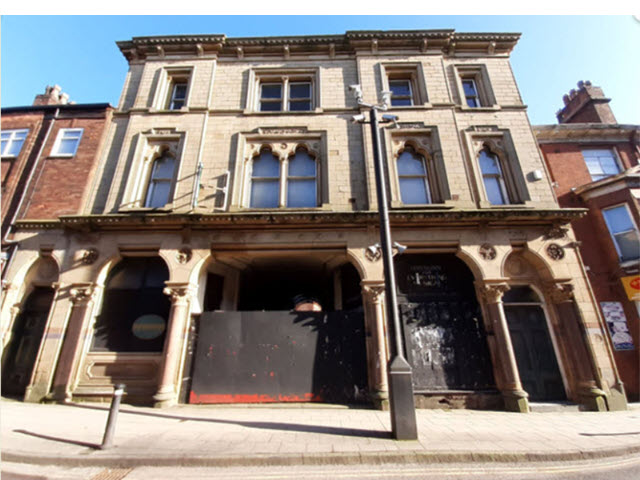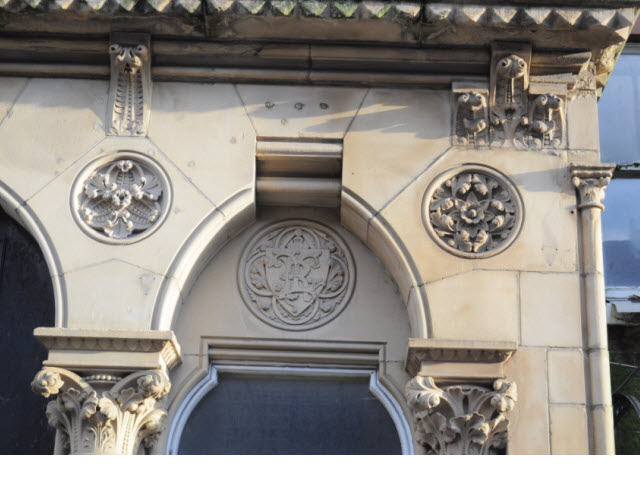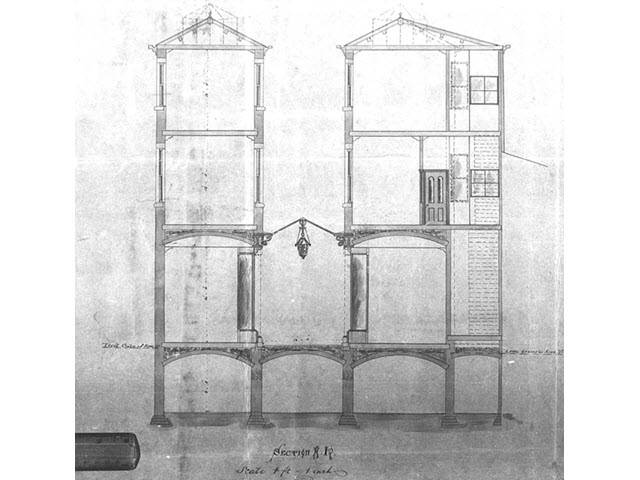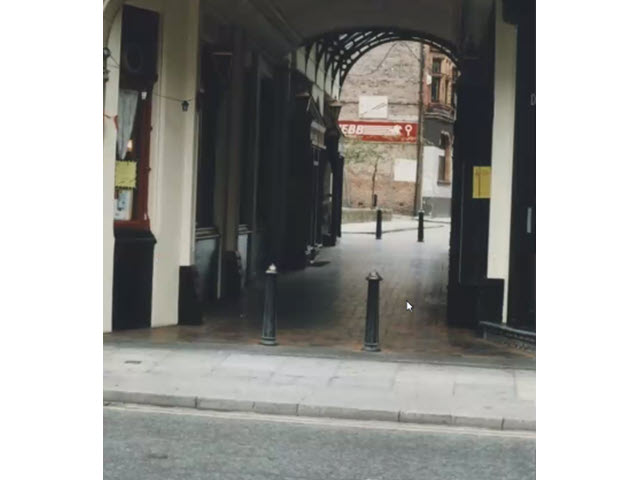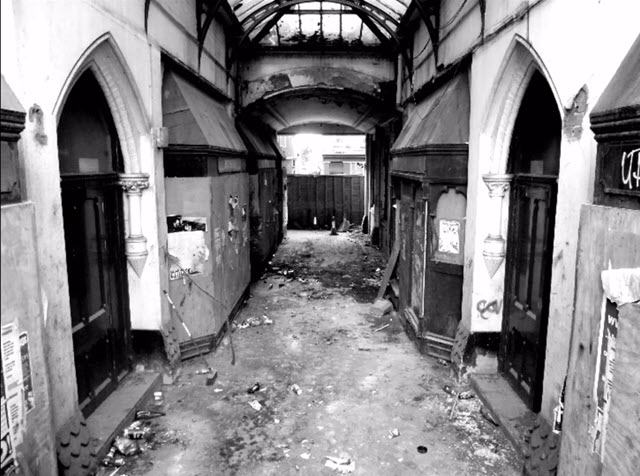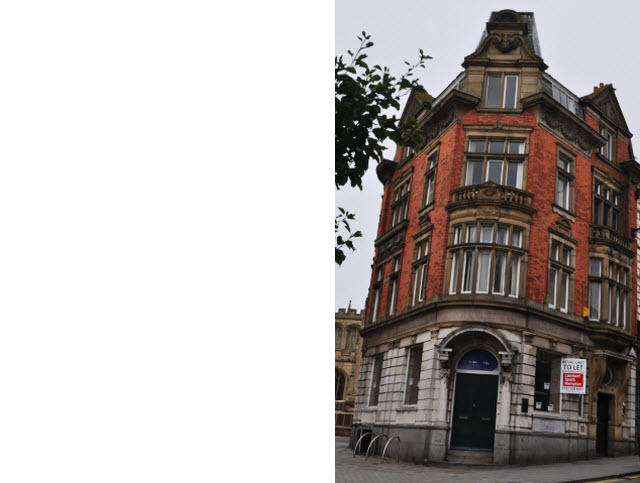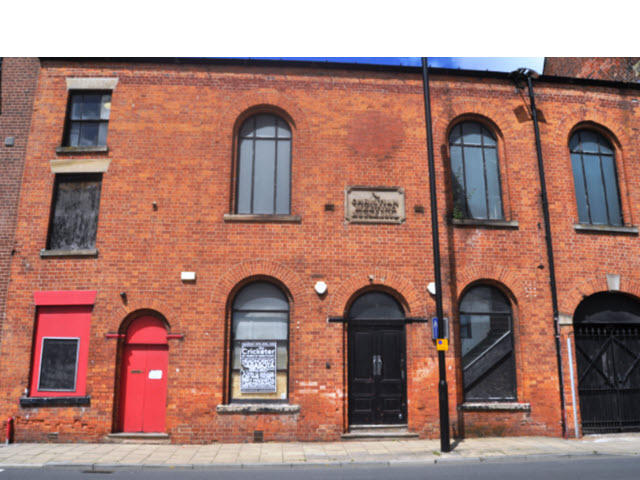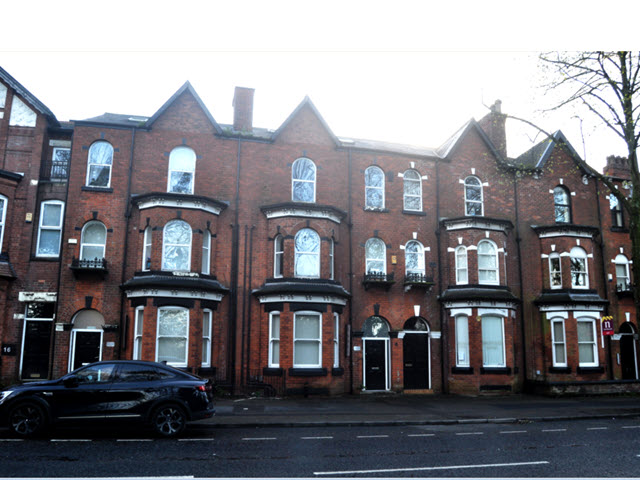Grimes Arcade Building
22 - 24 King Street, Wigan
Description
GRIMES ARCADE
Commercial building incorporating short shopping arcade, with offices over.
Built in 1870, designed by Richardson Thomas Johnson; slightly altered.
History Notes on the architect - Richardson Thomas Johnson
Built for Solicitors Richard Leigh and the Manchester and County Bank. The monogram of the two organisations is carved in stone roundels above the two entrance doors.
History Notes on Richard Leigh and the Manchester & County Bank
Aug 1871 Celebratory Dinner to mark the Completion of the Building
The Grime Family Business
Originally named The Arcade, over the years the arcade was and is known as Grimes Arcade. This was probably due to the recognition and popularity that Ellen Grime and her family held within the religious, musical, and commercial communities in Wigan.
Prior to the opening of the Arcade shop in King Street, Ellen and her husband William had for several years a tobacconist and stationery shop in Wallgate. William was the market superintendent at the newly opened Market Hall and Inspector of Weights and Measures for the town.
William and Ellen had 3 children, Charles, William, and James who all followed Ellen into the world of music.
The King Street music shop opened for business in 1872 and was one of the Arcade’s first tenants. In addition to musical instruments the shop sold sheet music and, stationery - mainly embossed and embroidered cards.
The Grimes musical foray into the music business proved to be a resounding success. Ellen was well placed to grow the business being an excellent vocalist described as “no ordinary voice” and was also the leader of the local parish church choir and sang at many great concerts.
With these credentials, Ellen was able to organise through the Grime company many concerts with professional musicians and vocalists.
As an example, In 1878 Ellen organised a pianoforte and violin concert performed by Charles Halle and Wilma Norman-Neruda at the Public Hall, King Street. Charles Halle founded the world-famous Halle orchestra based in Manchester and would marry Wilma, eleven years later.
All of Ellen’s sons became proficient pianists and James would develop into an opera singer, studying in London and Milan. James who performed under the name of Somers Grime would eventually become the lead baritone for the Carl Rosa opera company.
Mr. W. Grime’s Music Warehouse continued to grow and flourish until the death of Ellen in 1894.
After the death of Ellen, the business became a partnership between the three sons, William, Charles, and James, a.k.a Somers. The brothers did not have a clear view of the progress of the company without their mother’s guidance and after several disagreements, the partnership was dissolved in April 1895.
Charles left the company and set up a similar music business in Station Road, now the entrance to the Grand Arcade).
William and James continued at the Arcade location and continued to sell musical instruments along with the sale of pianos/harmoniums and tuning services.
Dissolution of Partnership – Charles Grime
Dissolution of Partnership – William & Somers Grime
James died in 1912 and was then the landlord of the Shakespeare Hotel also in King Street. It is not known whether James, now known locally as Sam. had any involvement in the Grime family business at the time of his death.
In 1915 Grimes entered the developing and popular recorded music industry, selling "His Masters Voice" phonographs for a guinea, 21 shillings. In addition, records were sold including "Rag Time" music at 1s 1d each.
Over the years the business endured competition from other companies, particularly Sheargolds who opened an extensive shop at 11, Standishgate and later by John Heywood, 11, Library Street and Ogden’s at 67a Market Street. Nevertheless, the company survived in business until 1950 when the shop was bought by a Leslie Marks.
There seems to have been a belated effort in the late 1940’s to create a recording company under the labels of Jamco and Grimes Records, publishing mainly brass band records.
In the 1960’s a record department was set up selling popular records via dedicated “listening” booths in the basement
The business was subsequently purchased by Dawson’s, who relocated to Hallgate in the late 1970’s or early 1980's, thereby ending the Arcades over a hundred years of involvement in the Wigan music scene.
In 1952 there was a series of small explosions in the Arcade, requiring the Arcade to be cordoned after an incident where reportedly a Wigan Man was "lifted off his feet"
Additional Information
Other Occupants of The Arcade – 1950’s
Ellis Sayer & Henderson – Solicitors
Messrs John Trickett & Sons Ltd – Auctioneers, also owners of the Wigan Cattle Market, Frog Lane & Prescott St.
Gibson & Russell - Solicitors
PF 2021

